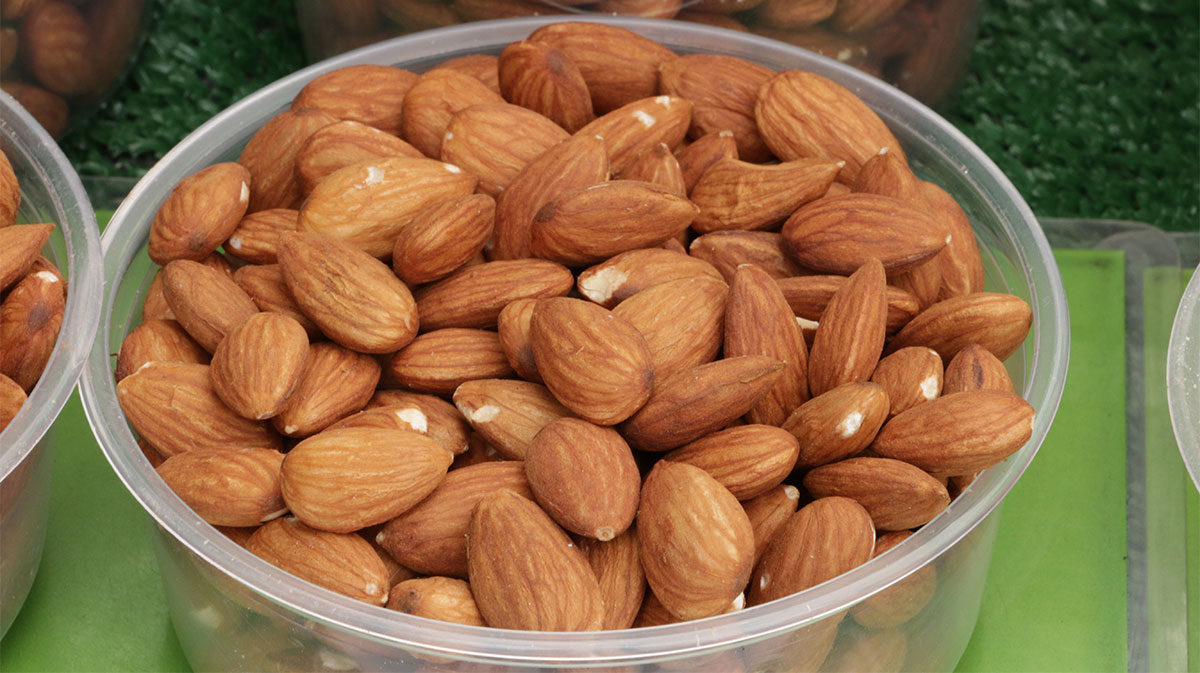When I was a kid, I was decidedly anti-almond. The only way an almond ever made its way into my mouth was by accident, in the form of “candy bones,” my childhood name for the tree nut. As I got older, so did my family. And, as the saying goes, “With age comes an increased risk of heart disease.” Or something like that.
In any case, a relative had a heart attack and my parents decided to change our diet drastically. Baby carrots and hummus replaced potato chips and French onion dip. Salads and baked chicken replaced French fries and burgers. And much to my dismay, my mom stocked the shelves with plain, non-chocolate-covered almonds.
In retrospect, it was a great decision, because almonds are amazing! There are a ton of reasons why you should consider adding more almonds to your diet–here are just a few:
1. Almonds can keep your cholesterol levels in check
You probably already know that high levels of triglycerides and LDL cholesterol contribute to the development of heart disease. But you may not know that eating almonds can help decrease those levels, while at the same time increasing HDL cholesterol–often referred to as “good” cholesterol (1, 2).
2. Almonds are high in antioxidants
Oxidative stress is associated with the body’s natural aging process, as well as a whole host of health issues, including heart disease, Alzheimer’s, and Parkinson’s. Antioxidants help prevent and reduce that oxidative stress, keeping you healthier and happier.
When antioxidants come up in conversation, someone always mentions blueberries. While it’s true that they do have a crazy high concentration of antioxidants, the USDA found that almonds have a total antioxidant content nearly 75% as high as the little blue fruits (3).
3. Almonds can help you shed pounds for your next running event
Obesity is a global health concern: it was recently estimated that about 37% of the world is overweight or obese. And, in 2010, 3.4 million deaths were attributed to those conditions (11).
Several studies have shown that a low-calorie diet including almonds instead of other comparable foods can lead to better outcomes: a lower BMI, thinner waist, and a reduction in fat mass and water weight (4, 5).
4. Almonds can help control diabetes
Between the 1980’s and 2011, lifetime diabetes risk skyrocketed in America. In a single generation, men’s likelihood of contracting the disease has risen 20% (12).
So it comes as good news that researchers have found eating almonds at mealtime can improve diabetics’ glycemic control, also known as blood sugar levels (6, 7).
5. Almonds are believed to be prebiotic
There are millions of microbes living inside our digestive system, and lately they’ve been receiving a lot of attention from the scientific community. The gut biome is suspected to influence a multitude of diseases ranging from obesity, inflammatory bowel disease, and colon cancer to depression, autism and anxiety disorders (8).
Everyone focuses on probiotics like yogurt, kefir, kombucha, and kimchi, which contain bacteria. But many scientists believe the lesser-known prebiotics, which provide food for the microbes inside us, are just as important. It just so happens that almonds (especially their skins) are a great way to increase your prebiotic intake (9, 10).
6. Almonds are high energy and high protein
Every cup of almonds contains over 800 calories and 30 grams of protein (13)! This makes them the perfect fuel for hiking, running, and all sorts of other endurance sports.
There’s a good reason they’re such a beloved trail mix ingredient!
7. Almonds are incredibly versatile
Not only can bring them anywhere, you can make them into anything. They can be eaten raw, roasted, smoked, fried, or blanched.
They can be slivered and tossed on top of salads, oatmeal, or cereal. They can be made into a vegan milk alternative, milled into peanut-less butter, or ground into gluten-free flour. However you choose to consume them, almonds are a fantastic addition to any runner, cyclist or swimmers nutritional regimen.
Eventually–and begrudgingly–I started to eat those “candy bones,” and I even began to enjoy them. Now they’re included in my daily diet…they’re just so good–and good for you!



